SUMMARY
This is AI generated summarization, which may have errors. For context, always refer to the full article.

HONG KONG – Two Reuters journalists had their identities faked by an unknown person or people who then used sham social media accounts to engage with Chinese activists on several online platforms over several months.
The false representations of the two journalists, Shanghai bureau chief Brenda Goh and Hong Kong-based correspondent Jessie Pang, starting in late November, appeared on platforms including Instagram and the Telegram message app.
The impersonator or impersonators were seeking information about a group linked to protests the same month against China’s strict COVID-19 controls, according to screenshots and several accounts provided to Reuters.
An Australia-based Chinese activist and dissident artist known as Badiucao first disclosed the impersonations on Saturday, February 25, on Twitter.
A fake account was set up on Instagram and one on Telegram purporting to be Pang, according to screengrabs from Badiucao seen by Reuters. Another activist told Reuters he had conversed with a fake persona of Goh via Telegram for three months.
Badiucao tweeted that he had been approached on Telegram by someone purporting to be Pang, asking for information on a Chinese-language online platform called Citizens Daily that carries protest art.
“Hello everyone,” an imposter wrote in a Telegram chatroom, according to screenshots seen by Reuters that were provided by Badiucao. “I am Jessie with Reuters.” The imposter then asked two members of the group: “Do you two have any ties to Citizens Daily?”
The imposter sought to gain the group’s trust by giving details of Pang’s background and recent work, Badiucao said.
Badiucao said he became suspicious at the language and questions posed by the imposter, however, and asked to verify the person’s identity through Pang’s verified Twitter account.
The imposter said he or she had no control over the Twitter account, as it was “run by a team at Reuters,” a screenshot of the conversation provided by Badiucao showed.
The person then sent Badiucao, a political cartoonist prominent among protesters, a photo of Pang’s press ID, which had expired.
Reuters could not ascertain who was behind the fake journalist personas. After the fakes were exposed, all their known accounts and conversations were deleted. None of Goh’s or Pang’s official social media accounts appeared to have been hacked.
A Reuters spokesperson said, “We are looking into the impersonation and theft of press credentials of Reuters journalists and will take appropriate action.”
A spokesperson for Instagram owner Meta Platforms Inc META.O said the platform had taken down the imposter’s account, declining to comment further. Telegram did not respond to Reuters requests for comment on the impersonations of the journalists’ accounts on that platform.
A spokesman for Hong Kong’s Security Bureau said: “Members of the public are encouraged to report to the Police if there is any suspected crime. The Police will take appropriate actions on reports of crime accordingly.”
An administrator at Citizens Daily, responding to a request for comment, said the group suspected Chinese state involvement in the impersonations. The administrator declined to give their name, citing the risk of reprisals, and did not offer any evidence to support this assertion.
China’s Ministry of Foreign Affairs, the Cyberspace Administration of China and the Public Security Bureau did not respond to requests for comment on Citizens Daily’s claim or on the impersonation of the journalists.
Citizens Daily had been a conduit for sharing information among protesters during the November demonstrations in multiple Chinese cities against Beijing’s zero-COVID policy, with some calling for President Xi Jinping to step down and an end to Communist Party rule.
The civil disobedience was unprecedented in mainland China since Xi assumed power a decade ago, sparking a wave of arrests and a broad security clampdown.
An activist with the Twitter handle “accelflopping” told Reuters that an imposter purporting to be Goh contacted him via Telegram. To gain his trust, the person showed a picture of Goh’s press card and provided other personal details, including Goh’s nationality.
This activist, who is based overseas, said he only learned of the subterfuge from Badiucao on Saturday after having communicated with the “fake Brenda” since late November about his group’s plans for future protests. They spoke via Telegram text message, apart from one short phone call, he said.
He declined to disclose his name, citing sensitivities.
A person with the Twitter handle “775lighting” tweeted about also having been approached several times since Feb. 4 by a “fake Jessie” Pang, who sought to “steal sensitive details” about their protest activities.
Reuters could not reach this person for comment. – Rappler.com
Add a comment
How does this make you feel?




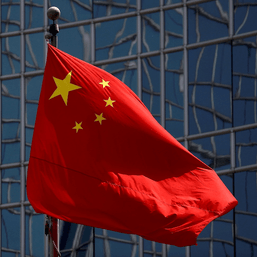

![[ANALYSIS] Crisis of the West, opportunity for the rest?](https://www.rappler.com/tachyon/2024/07/20240715-crisis-of-the-west-opportunity-for-the-rest.jpg?resize=257%2C257&crop_strategy=attention)
![[OPINION] Choosing a president](https://www.rappler.com/tachyon/2024/07/Choosing-a-President-July-9-2024.jpg?resize=257%2C257&crop=300px%2C0px%2C1080px%2C1080px)
![[Edgewise] Authoritarian mass delusion puts US democracy at risk](https://www.rappler.com/tachyon/2024/06/authoritarian-mass-delusion-us-june-18-2024.jpg?resize=257%2C257&crop_strategy=attention)

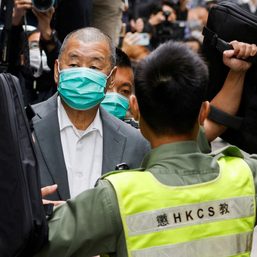
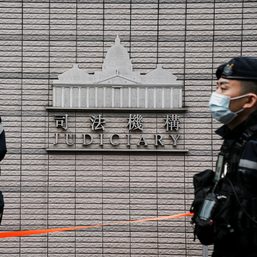


![[OPINION] A rebellion long overdue](https://www.rappler.com/tachyon/2024/06/mass-uprising-matrix-june-4-2024.jpg?resize=257%2C257&crop_strategy=attention)

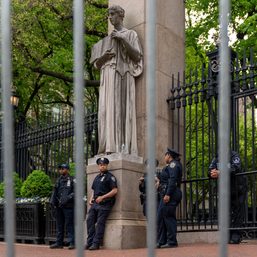







![[Vantage Point] China’s silent invasion of the Philippines](https://www.rappler.com/tachyon/2024/07/TL-china-silent-invasion-july-16-2024.jpg?resize=257%2C257&crop=318px%2C0px%2C720px%2C720px)

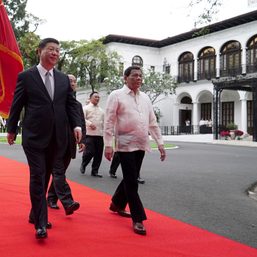
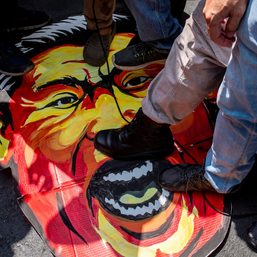

There are no comments yet. Add your comment to start the conversation.